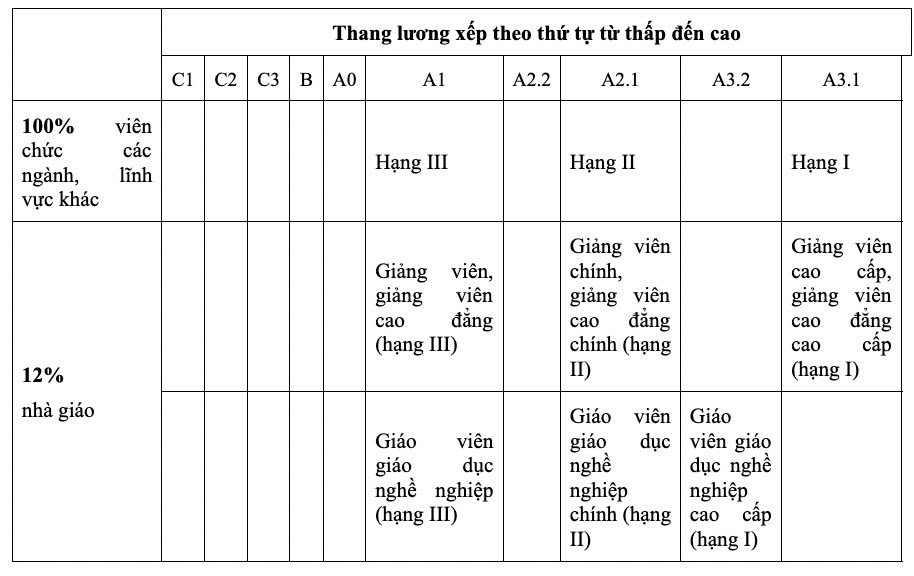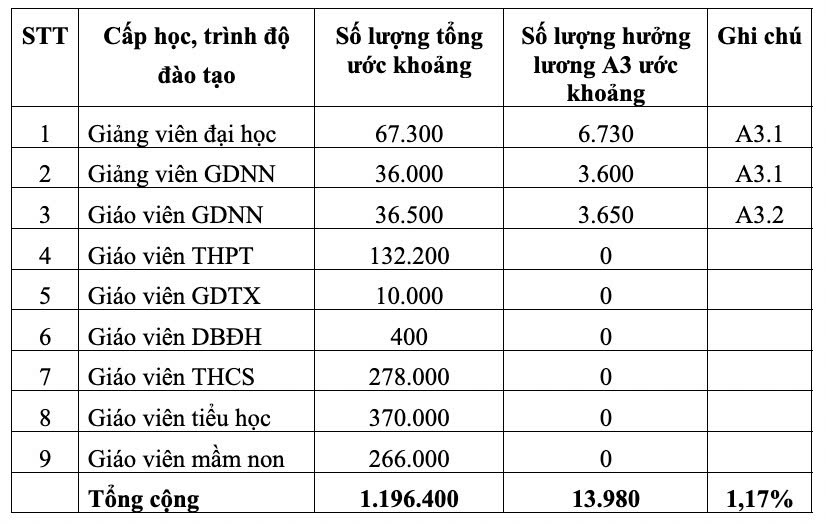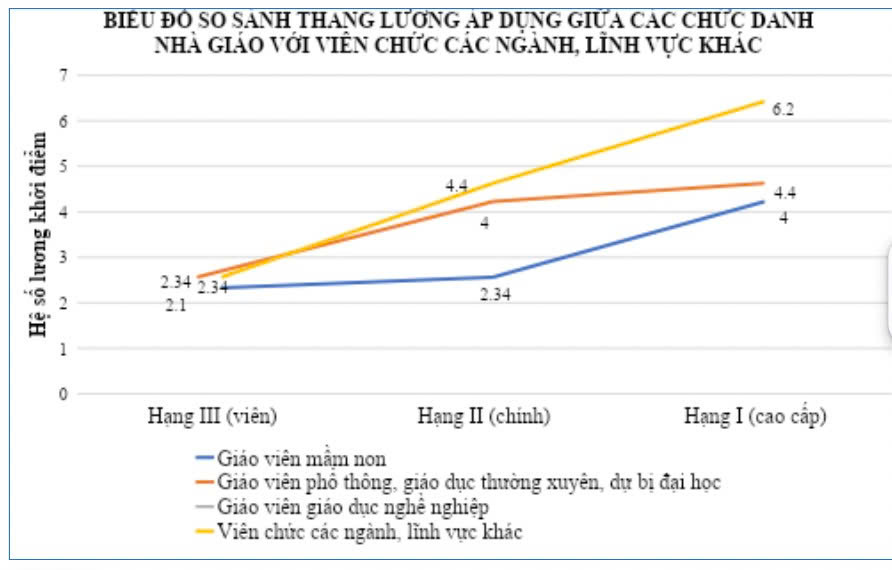100% of preschool teachers have the lowest salary
The Ministry of Education and Training is developing and soliciting opinions on the content of the draft Decree regulating salary policies, allowances for teachers, and instructions for implementing the Law on Teachers.
On November 14, the Ministry of Education and Training informed about the reason for proposing that all teachers are entitled to the "Special Salary Coefficient" as stipulated in the draft.
According to the Ministry of Education and Training, in reality, the salary arrangement of teachers is not as the policy that the Party has determined for the past 29 years, the salary of teachers is not currently ranked highest in the administrative career salary scale system, and most teachers are even ranked on a lower salary scale.
Currently, 12% of teachers are classified into 3 groups: A1 - A2.1 - A3.1, but nearly 100% of civil servants in other sectors and fields are classified into these 3 groups.

Of these, only a maximum of 1.17% of senior teachers (grade I) are classified in the highest salary scale (including A3.1 and A3.2), while other sectors have a maximum of 10% of civil servants classified in the A3.1 salary scale.

88% of teachers are ranked below the salary of civil servants in other sectors and fields: 88% of these teachers can enjoy the highest salary coefficient of 6.78; while civil servants in other sectors can enjoy the highest salary coefficient of 8.0 (about 1.18 times higher). Meanwhile, teachers must have a training level that meets the prescribed standards.
100% of preschool teachers are currently ranked at the lowest salary in the administrative career salary scale system, including:
The starting coefficient for grassroots teachers in grades III is 2.10 while the grassroots titles of other civil servants in the sector are 2.34 (about 1.11 times higher);
The starting coefficient for Grade II preschool teachers is 2.34 while the Grade II titles of other civil servants in the industry are 4.4 (about 1.88 times higher);
The starting coefficient for Grade I preschool teachers is 4.0 while the Grade I titles of other civil servants are 6.2 (about 1.55 times higher);
The highest salary coefficient that preschool teachers can receive is 6.38, while the highest salary coefficient that civil servants in other sectors can receive is 8.0 (about 1.25 times higher).
This can be clearly seen through the following chart:

Looking at reality, with this salary arrangement, the teaching profession has not been recognized and honored as worthy of the Party's policies.
The career of "training" requires teachers to be dedicated, love their profession, love their students; have extensive knowledge, pedagogical skills, communication skills, self-study awareness, the ability to continuously update and must build the image of an exemplary teacher to educate learners through following their example. Therefore, it is necessary to consider the overall administrative career salary scale to arrange teachers' salaries commensurate with the position and role that have been determined by the Party in the resolutions and stipulated by the National Assembly in the Law on Teachers.
Special Salary Coefficient does not disrupt the design of the current salary system
The Ministry of Education and Training affirms that the regulation of "specific salary coefficient" does not disrupt the design of the current salary system because the specific salary coefficient is only used to calculate the salary level (the basic salary is calculated according to the current salary coefficient) according to the formula:
Basically, with this calculation method, the salary scale of teachers still uses the general salary scale for civil servants of public service units, only adding a specific coefficient to ensure the principle of "teacher salaries are ranked highest in the administrative career salary scale".
The special salary coefficient is also not used to calculate allowances, not used to calculate the amount of the reserve difference coefficient according to Circular No. 07/2024/TT-BNV dated July 5, 2024 of the Ministry of Home Affairs guiding the implementation of the basic salary for salary and allowance recipients in agencies, organizations, public service units of the Party, State, the Vietnam Fatherland Front, socio-political organizations and associations.
Therefore, the specific salary coefficient does not disrupt the current salary system structure. On the other hand, when implementing the new salary policy, the conversion will still ensure convenience and maintain the specific coefficient for teachers.











